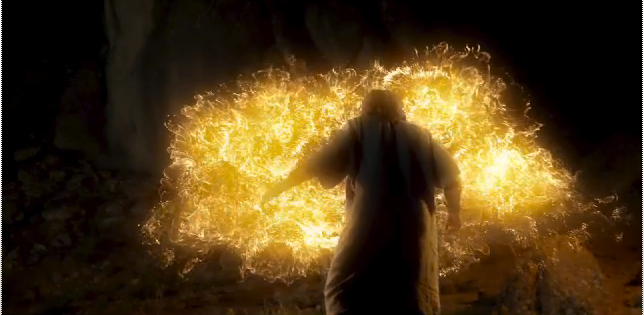December 18 - O Adonai

"I am who am." Adonai. Lord.
Once a prince of Egypt and now exiled to a foreign land and tending the flock of his father in law, Moses climbs the mountain of Horeb and encounters God in a burning bush unconsumed by fire. God call Mosed by name. Moses answers, "Here I am." "Remove your sandals," God tells him. "You're standing on holy ground."
Thus begins Moses' commission to lead the oppressed Israelites to freedom, to stand with courage against Pharoah, once beloved by Moses, who demands the release of the Israelite slaves held in captivity in Egypt.
Jesus, the new Moses leads all peoples to freedom in a new way of life, a liberation from any of the slavery that binds us from encountering God. The work of the Christian is to follow the Gospel, God's Word enfleshed in the birth of Jesus, the Christ, the new Moses. God does not come to us through a burning bush but in the human form God with us - Emmanuel.
O Antiphon, Day Two:
O Adonai, o sacred Lord of ancient Israel, who showed yourself to Moses in the burning bush, who gave him your holy law on Sinai mountain: come, stretch out your might hand to set us free.
Pastoral musicians may want to consider the Advent hymn O Come, O Come Emmanuel as a song for the Communion Procession as we head toward the fourth and final Sunday of Advent. Cantor and/or choir on the verses of all of the O Antiphons and assembly on refrain offers an opportunity for worshipers to dwell on the beautiful poetry of the antiphons while leaving their hands free to eat holy bread and drink sacred cup without holding a hymnal in their hands.
Verse Two of the hymn for this second day of the O Antiphons sings:
"O come, O come, great Lord of might,
who to your tribes on Sinai's height
in ancient times once gave the law
in cloud and majesty and awe.
Rejoice, rejoice,
Emmanuel shall come to you, O Israel."
Come, Lord Jesus.
 Denise Morency Gannon
Denise Morency Gannon
Reader Comments